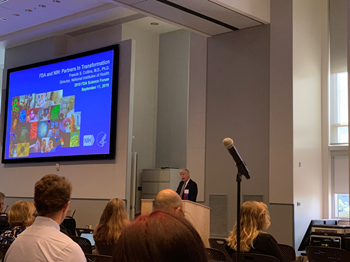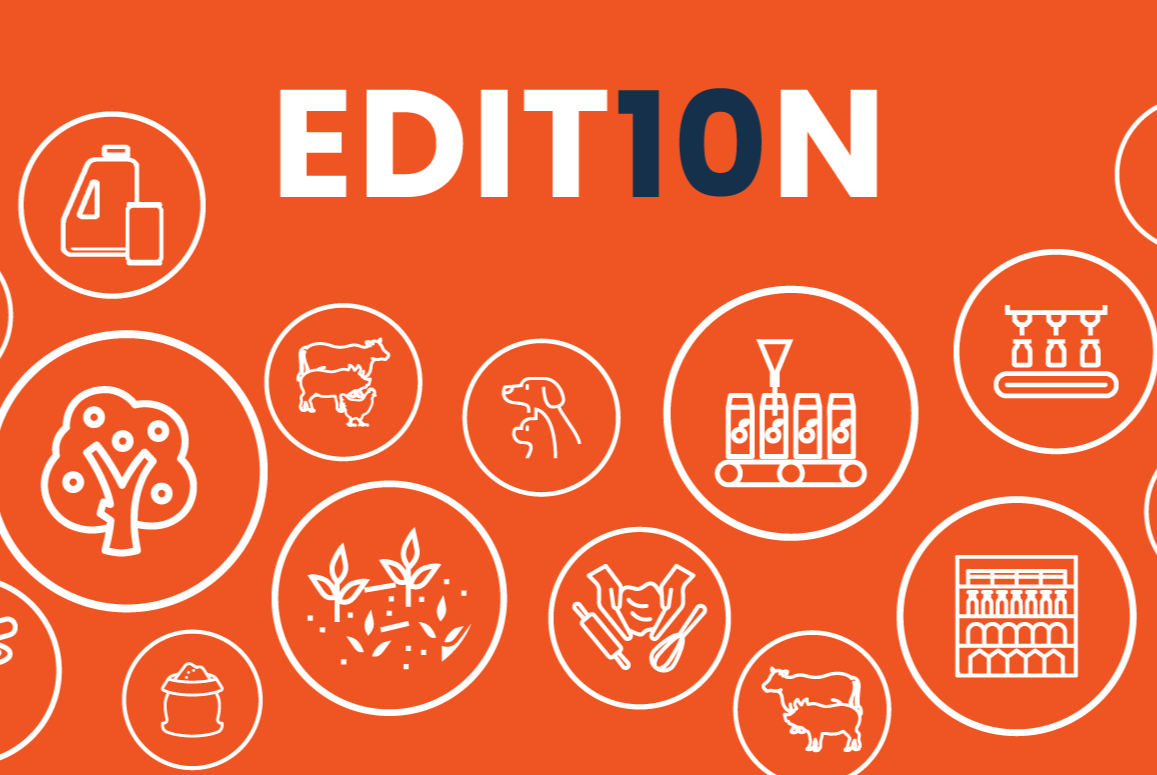Food Safety, Technology and Regulatory Decision Making at the FDA
By Adam Friedlander, MS, Manager, Food Safety and Technical Services, Food Marketing Institute

At this year’s biennial FDA Science Forum, scientists from the U.S. Food and Drug Administration (FDA) and academia shared cutting-edge food safety research to update the general public on important work being conducted to protect public health. The forum showcased the agency’s research and how it is being used to develop scientific tools and technologies to advance food safety and inform regulatory decision making.
All presentations and panel discussions from this forum are free and available to watch through the website’s webcast. The food safety topics discussed are important and valuable for FMI members because developing the next generation of retail food safety leaders is a top priority for the FMI Food Protection Committee (FPC). The following presentations provided insight into current FDA scientific initiatives and can help future food safety leaders develop stronger critical thinking, technical science and regulatory skills.
- Keynote Address – FDA and NIH: Partners in Transformation – Francis Collins, MD, PhD, Director, National Institutes of Health (NIH)
- MetagenomeTrakr Pilot Program for Rapid Foodborne Pathogen Detection– Paul Morin, PhD, FDA’s Office of Regulatory Affairs (ORA)
- The Promise of Microbial Genomics: How Microbiology is Standing Up to the Many Challenges of a 21stCentury Food Supply – Marc Allard, PhD, FDA’s Center for Food Safety and Applied Nutrition (CFSAN)
- Editing the Genome without DNA Breaks – Jakob Reiser, PhD, FDA’s Center for Biologics Evaluation and Research (CBER)
- Violent Non-State Actor Use of Food as a Delivery System: Comparing Ideological and Non-Ideological Perpetrators – Markus Binder, MS, University of Maryland
- Bio-Terrorism Regulations and Food Security – Desmond Brown, MS, FDA’s ORA
- FDA Food Defense Efforts: A Preventive Approach to Food Terrorism – Ryan Newkirk, PhD, FDA’s CFSAN
- Innovation in Science: Protecting People from Emerging Infectious Disease Threats – Christopher R. Braden, MD, Centers for Disease Control and Prevention (CDC)
- Foodborne Outbreak Investigations in the Whole Genome Sequencing Era – Jennifer Beal, MPH, FDA’s CFSAN
- Tracking antibiotic resistance in Salmonella: The role of the National Antimicrobial Resistance Monitoring System – Patrick McDermott, PhD, FDA’s Center for Veterinary Medicine (CVM)
- Emerging & Pandemic Threat Preparedness – Jerry Weir, PhD, FDA’s CBER
- Consumers’ Use of Personal Electronic Devices in the Kitchen – Amy Lando, MPP, FDA’s CFSAN and Michael Bazaco, PhD, FDA’s CFSAN
- AI at FDA: Potential Utility and Regulatory Challenges – Panel of FDA Scientific Experts
Engaging with federal government scientists is a valuable experience to keep up with the latest scientific innovations and a great opportunity to maintain a relationship with regulatory agencies. FMI is proud to work on behalf of our members to build strong relationships with local, state and federal regulators and scientists.
Recent Blog Posts
With Edition 10 audits arriving as early as Jan. 2, 2027, sites that start closing gaps today will walk into their audit with far more confidence than those scrambling at the end of 2026.
SQF Food Safety Code Edition 10 is now available, and it marks more than a routine update to the Code.
As we move toward the launch of SQF Edition 10 in early March, one message is clear. Food safety is no longer evaluated only through programs, procedures, and records.




